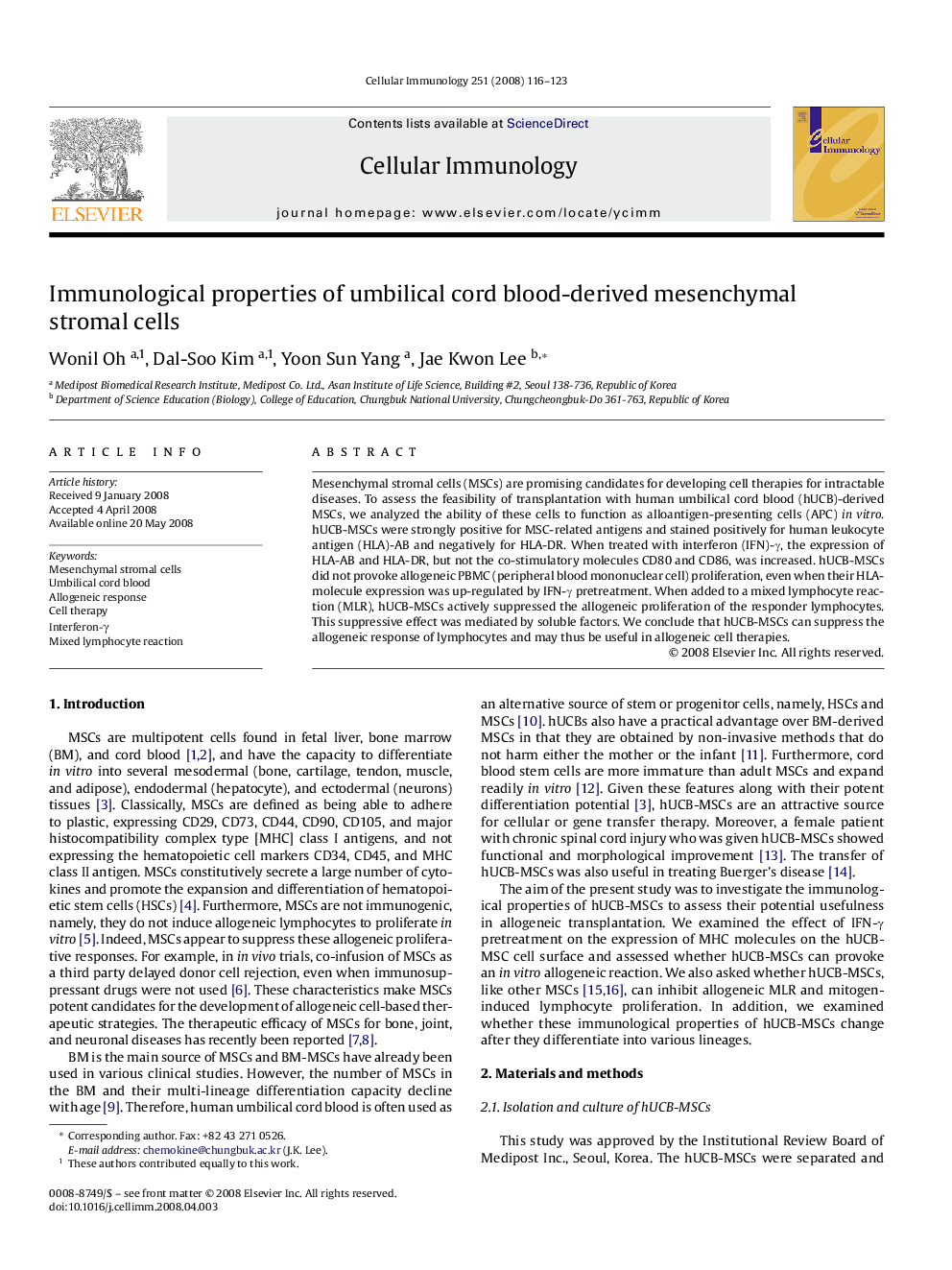| کد مقاله | کد نشریه | سال انتشار | مقاله انگلیسی | نسخه تمام متن |
|---|---|---|---|---|
| 2167954 | 1092363 | 2008 | 8 صفحه PDF | دانلود رایگان |

Mesenchymal stromal cells (MSCs) are promising candidates for developing cell therapies for intractable diseases. To assess the feasibility of transplantation with human umbilical cord blood (hUCB)-derived MSCs, we analyzed the ability of these cells to function as alloantigen-presenting cells (APC) in vitro. hUCB-MSCs were strongly positive for MSC-related antigens and stained positively for human leukocyte antigen (HLA)-AB and negatively for HLA-DR. When treated with interferon (IFN)-γ, the expression of HLA-AB and HLA-DR, but not the co-stimulatory molecules CD80 and CD86, was increased. hUCB-MSCs did not provoke allogeneic PBMC (peripheral blood mononuclear cell) proliferation, even when their HLA-molecule expression was up-regulated by IFN-γ pretreatment. When added to a mixed lymphocyte reaction (MLR), hUCB-MSCs actively suppressed the allogeneic proliferation of the responder lymphocytes. This suppressive effect was mediated by soluble factors. We conclude that hUCB-MSCs can suppress the allogeneic response of lymphocytes and may thus be useful in allogeneic cell therapies.
Journal: Cellular Immunology - Volume 251, Issue 2, 2008, Pages 116–123